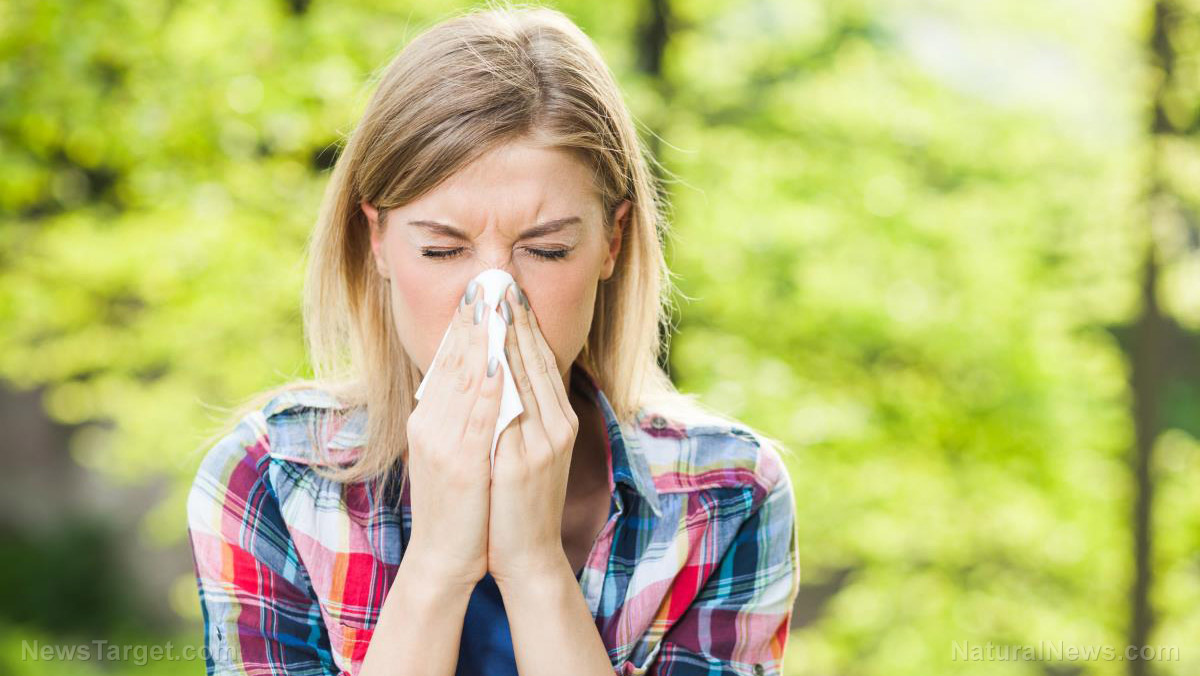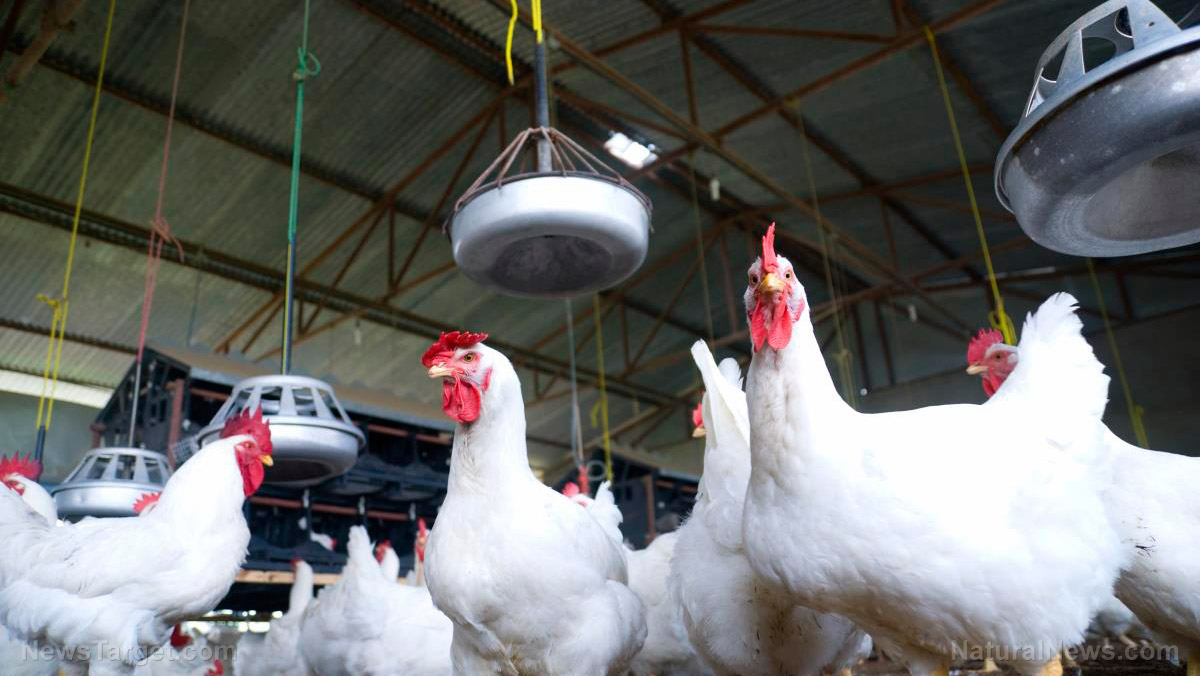WHO monitors mysterious pneumonia cases among children in China, which experts say are “concerning” but likely not due to a new COVID variant
12/05/2023 / By Zoey Sky

The World Health Organization (WHO) is looking into an alarming increase in respiratory illness among children in China.
The cause of the reported pneumonia cases is unclear, but some health experts think that it is a common and temporary aftereffect of lifting pandemic lockdown restrictions.
The unanswered questions surrounding the recent infections have raised concerns due to parallels with the early days of the COVID-19 plandemic.
WHO, experts urge China to be forthcoming about pneumonia cases
The WHO is requesting detailed information from Chinese officials on the increase in pneumonia cases among children, using language similar to a January 5, 2020, pre-pandemic missive about the Wuhan coronavirus (COVID-19).
Officials from China’s National Health Commission first reported an increase in respiratory illness at a Nov. 13th press conference, according to the WHO.
The WHO has since asked for additional information from China, including patient lab results and data on the circulation of known respiratory pathogens like influenza, COVID-19 and respiratory syncytial virus (RSV). The organization also requested details on how the circulation is affecting China’s healthcare system capacity.
A bulletin from the International Society for Infectious Diseases reported that children’s hospitals in Beijing, Liaoning and other areas in China are “overwhelmed with sick children,” and that schools are “on the verge of suspension.”
On Nov. 22, experts said that the cases are concerning and called on China to be forthcoming with its data. The limited information provided so far doesn’t suggest the development of a new pathogen. (Related: New wave of COVID-19 infections driven by omicron sub-variants hits China.)
Dr. Michael Osterholm, the director of the University of Minnesota’s Center for Infectious Disease Research and Policy (CIDRAP), suspects that the pneumonia cases are due to “a series of already recognized respiratory pathogens” because they have allegedly been affecting only children.
If the illness was due to a new pathogen, it would be affecting both children and adults equally, explained Osterholm.
Dr. Amesh Adalja, an infectious disease specialist and senior scholar at the Johns Hopkins Center for Health Security, agrees with Osterholm. Adalja explained that while information is still insufficient, there is a chance that the infections are due to a “constellation of various respiratory pathogens together causing clusters of illness.”
Adalja noted that some reports suggest Mycoplasma pneumoniae, an atypical bacteria that can cause lung infection, is behind the pneumonia cases. The bacteria is commonly known as “walking pneumonia.”
Adalja advised that it is crucial to “gain insights into what pathogens are being tested for and what results are available.” However, doing this can be a challenge, particularly due to the problematic “historical lack of transparency that is emblematic of China’s authoritarian government.”
Dr. Stuart Ray, vice chair of medicine for data integrity and analytics at Johns Hopkins’ Department of Medicine, said that the infections are “concerning” and that a timely response and proper evaluation are key to preventing the further spread of infections.
WHO advises Chinese citizens to get vaccinated and wear masks
While the WHO is investigating the matter, the organization advised Chinese citizens to get vaccinated despite the many adverse effects of COVID-19 shots and other vaccines.
It also advised China to maintain social distancing from patients, stay home when sick, wear masks “as appropriate,” ensure proper ventilation, wash hands thoroughly and get medical care as needed.
The WHO also said that Northern China has reported an increase in flu-like illness in the past month.
Raj Rajnarayanan, assistant dean of research and associate professor at the New York Institute of Technology campus in Jonesboro, Arkansas, said that if the infections are due to M. pneumoniae, common antibiotics like azithromycin and doxycycline could help patients recover.
Rajnarayanan added that health officials should focus on confirming the cause of the infections and trying to rule out common respiratory diseases.
Jay Weiland, a leading COVID-19 modeler, reassured that there is no reason to suspect a new COVID variant is responsible for the epidemic in China because it’s still unclear “if this is a collection of simultaneous peaks of a typical seasonal illness or a new infectious illness.”
Earlier in November, Chinese officials reported that the rise in mysterious pneumonia cases is due to the circulation of viruses like influenza and RSV, along with the lifting of COVID-19 restrictions. However, the restrictions were ended a year ago, ruling out the milestone as the cause.
Osterholm thinks that China has experienced a surge in viral infections this respiratory season because of the immunity debt theory which many blamed for 2022’s “tripledemic” of respiratory pathogens in the U.S. and other Western countries.
According to some experts, “immunity debt” is the price society must pay for observing pandemic precautions, which decreased people’s exposure to other viruses. This caused a delayed surge in non-pandemic viruses after mitigation efforts were ended.
Osterholm said that this could be more common worldwide, especially with seasonal respiratory viruses. He explained that the next respiratory season or two may be atypical, in part because of “immunity debt” or viral interference, with competitive viruses like COVID canceling out other viruses for a time.
But Ryan Gregory, a biology professor at the University of Guelph in Ontario, Canada, has an alternate theory that could explain post-pandemic surges in other viruses. Because COVID-19 suppresses the immune system temporarily in some patients, this makes them more susceptible to other infections.
Another theory suggests that getting infected with COVID and another pathogen at the same time makes what would ordinarily be a mild illness more severe.
Watch the video below for more about the mysterious pneumonia outbreak in China.
This video is from the Pool Pharmacy channel on Brighteon.com.
More related stories:
Dr. Peter McCullough: COVID shots should be taken completely off the market.
Sources include:
Submit a correction >>
Tagged Under:
big government, chaos, children's health, China, covid-19, dangerous, immune system, immunity debt, infections, influenza, kill vectors, lockdowns, Medical Tyranny, national security, outbreak, pandemic, panic, Plague, Pneumonia, SARS-CoV-2, unexplained, WHO, World Health Organization
This article may contain statements that reflect the opinion of the author
RECENT NEWS & ARTICLES
COPYRIGHT © 2017 INFLUENZA NEWS


















